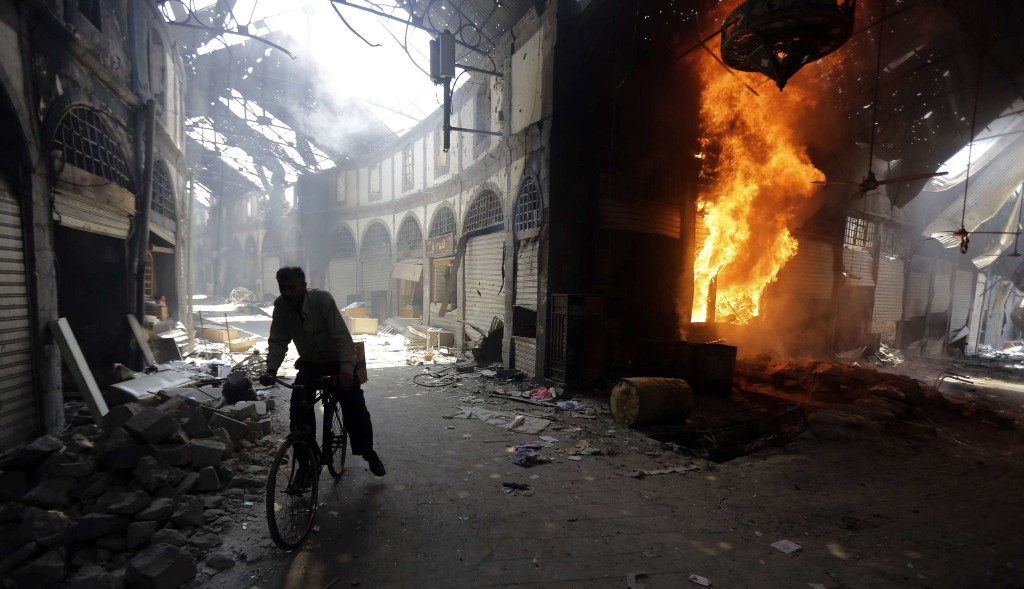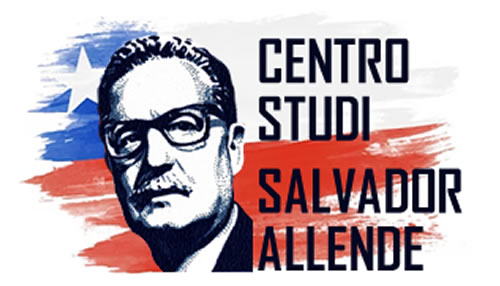
(THE NEW YORK TIMES) – The Security Council is scheduled to vote Thursday on a resolution that would ask the International Criminal Court to investigate war crimes in Syria.
Russia is certain to veto the resolution. Its Western rivals are equally certain to seize on that veto in an attempt to isolate the Kremlin diplomatically. Supporters of the resolution, which was drafted by France, have spent days drumming up support from more than 50 countries.
Syria has undertaken its own countercampaign, distributing a letter castigating France for promoting what the Syrian ambassador, Bashar Jaafari, called a “biased draft resolution in order to sabotage any chance of peaceful settlement of the Syrian crisis led by the Syrians themselves.”
France said the resolution was necessary to send a message to Russia, the Syrian government’s most important backer, even in the face of a veto.
“What happened in Syria is beyond simple fighting,” said France’s ambassador, Gérard Araud. “You have torture on an industrial scale. You have barrel bombs, missiles, chemical weapons.” He added: “There are rules. We have common values we must stick to.”
The resolution is also calculated to be part of a two-step move. Western diplomats said the Thursday vote is likely to be followed next week by a resolution authorizing United Nations aid convoys to cross into Syria, without government permission, through four border points along the frontiers with Iraq, Jordan and Turkey.
The Western envoys said they hoped such a strategy would make it diplomatically harder for Russia to veto two resolutions within days.
The Syrian conflict has been punctuated by repeated reports of crimes against humanity, including torture, extrajudicial executions, aerial bombardments of civilian areas and starvation as a weapon of war. Much has been meticulously documented. The Security Council measure, though expected to draw support from most of its 15 members, is likely to have no direct bearing on accountability.
“The only question in my mind is, Will it belong to the cemetery of good intentions or the museum of political scoring?” Louise Arbour, a former United Nations high commissioner for human rights and now president of the International Crisis Group, said in a telephone interview from Brussels on Wednesday. “This is, in a sense, an exercise in using the I.C.C. and accountability for posturing.”
The United States, which has not signed the treaty that created the International Criminal Court, is supporting the measure only after having negotiated important exemptions. The wording would, in effect, spare American soldiers from prosecution by the international tribunal, should they ever get involved in Syria with Security Council authorization. The resolution text also focuses exclusively on the Syrian conflict, which began in March 2011. That provision is intended to ensure that Israel, which holds the Golan Heights — territory that Syria also claims — is not made vulnerable to the scope of a court investigation.
The Russian ambassador, Vitaly I. Churkin, promised to veto the measure, calling it “a publicity stunt which will have detrimental effects unfortunately on our joint efforts in trying to resolve the crisis in Syria.” He did not specify those efforts.
It would be Russia’s fourth veto of a Council measure related to the war in Syria, which has killed an estimated 150,000.
The only certain way that the International Criminal Court can investigate crimes against humanity in Syria is through a Security Council referral, because Syria has not signed the treaty that created the court. Discussions are underway to create support in the General Assembly for accountability for war crimes in Syria. The General Assembly could, technically speaking, authorize a special tribunal for Syria, though that is unlikely without the cooperation of the Syrian government.
Efforts to increase support for the Syria resolution on the Council have been a carefully choreographed display of diplomatic wrangling. Its backers have lobbied African countries, which have lately denounced the International Criminal Court for what they call its disproportionate prosecutions of Africans. This week, 58 countries sent a letter to the Council urging it to refer the war in Syria to the court.
Of the Council’s 15 members, 11 are signatories to the treaty that created the court. Rwanda, which holds a two-year seat, is expected to vote yes, even though it is a bitter critic of the court.
The biggest unknown is China. It remains unclear whether it will join Russia in voting against the resolution, or merely abstain.
The Syria crisis reflects the difficulties the Security Council faces in referring cases to the International Criminal Court concerning countries that do not accept the court’s jurisdiction.
Ms. Arbour said she had once backed the power of the Council to make referrals, but had since changed her view, arguing that such action unduly politicizes the cases. Nor have resolutions on referrals yielded results in the two prior instances: Darfur in 2005 and Libya in 2011. The United States successfully inserted exemptions for its own soldiers into the language of both resolutions, as it has done in Syria’s.
The court’s supporters say they would prefer not to have the court’s reach limited like this, but they concede that without these concessions, they would lose American backing.
“The benefits for accountability in Syria far outweigh the reservations we do have,” said Christian Wenaweser, ambassador for Liechtenstein and an advocate for the international court.
He said he hoped Thursday’s vote would draw renewed attention to longstanding efforts to limit the use of the veto by the Council’s permanent five members. France, one of the five, has floated the idea of refraining from using the veto on resolutions that concern mass atrocities.
The United Nations high commissioner for human rights, Navi Pillay, has called on the Security Council to refer Syria to the court.
On the eve of the vote, Ms. Pillay’s office pointed out that aerial bombardments and shelling had damaged the water supply in Aleppo, depriving residents of access to drinking water for months, a violation of international humanitarian law.













 e poi
e poi